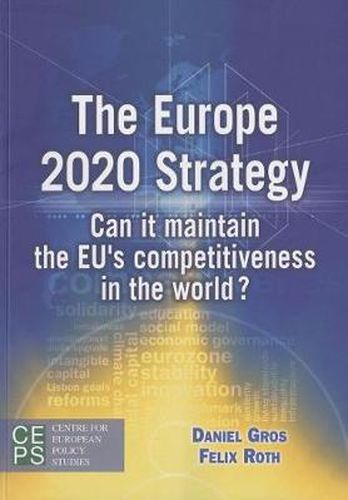Readings Newsletter
Become a Readings Member to make your shopping experience even easier.
Sign in or sign up for free!
You’re not far away from qualifying for FREE standard shipping within Australia
You’ve qualified for FREE standard shipping within Australia
The cart is loading…






Launched in March 2010 by the European Commission, the Europe 2020 strategy aims to achieve smart, sustainable, and inclusive growth. The engines for this growth are knowledge and innovation, a greener and more efficient use of resources, and higher employment combined with social and territorial cohesion. This CEPS report takes an in-depth look at this major initiative and finds that the strategy itself needs to be revised in several important respects. First, the authors believe, R& D spending per se is not the best indicator of innovativeness; a new measure, intangible capital, would be more appropriate. Second, while increasing the share of the workforce with a university degree is important for competiveness and employment, it is the quality of that education that matters more than the quantity. The study also finds that employment targets would be better reached by a skills upgrade of women who have the least education. Concerning climate change, the authors concludes that unless the EU increases the level of its ambition and adds a carbon import tariff, reduction targets for GHS emissions are likely to have a negligible impact on global climate change. Finally and more generally, the report argues that the 2020 strategy should acknowledge the importance of institutional efficiency at the national level.
$9.00 standard shipping within Australia
FREE standard shipping within Australia for orders over $100.00
Express & International shipping calculated at checkout
Launched in March 2010 by the European Commission, the Europe 2020 strategy aims to achieve smart, sustainable, and inclusive growth. The engines for this growth are knowledge and innovation, a greener and more efficient use of resources, and higher employment combined with social and territorial cohesion. This CEPS report takes an in-depth look at this major initiative and finds that the strategy itself needs to be revised in several important respects. First, the authors believe, R& D spending per se is not the best indicator of innovativeness; a new measure, intangible capital, would be more appropriate. Second, while increasing the share of the workforce with a university degree is important for competiveness and employment, it is the quality of that education that matters more than the quantity. The study also finds that employment targets would be better reached by a skills upgrade of women who have the least education. Concerning climate change, the authors concludes that unless the EU increases the level of its ambition and adds a carbon import tariff, reduction targets for GHS emissions are likely to have a negligible impact on global climate change. Finally and more generally, the report argues that the 2020 strategy should acknowledge the importance of institutional efficiency at the national level.